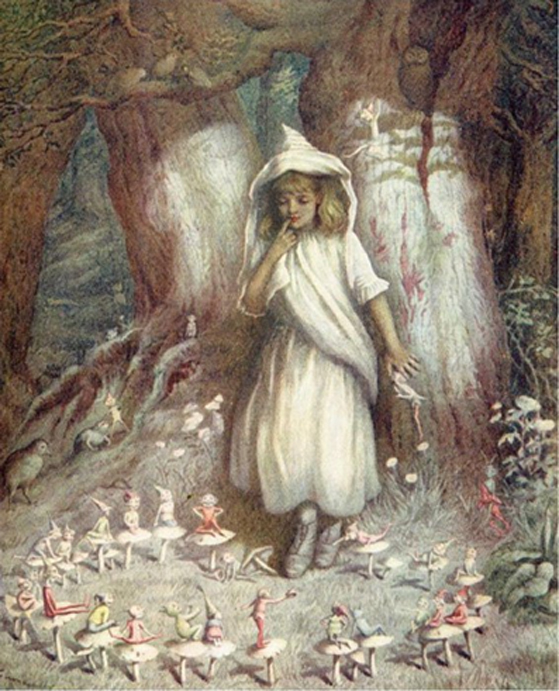Elves In European Folklore

Elves beasts monsters and spirits are said to haunt the forests and homes in this part of the world.
Elves in european folklore. These classifications are roughly equivalent to the scottish seelie court and unseelie court. Meadow elves by nils blommér 1850 an elf old norse álfr old english ælf old high german alb proto germanic albaz is a certain kind of demigod like being in the pre christian mythology and religion of the norse and other germanic peoples the elves are luminous beings more beautiful than the sun 2 whose exalted status is demonstrated by their constantly being linked. An elf is a mythical creature that appears to be human in nature but has magical powers and does not age or at least ages very slowly. Their dwellings are in mounds and they.
Many of the famous creatures that dominate eastern europe s folklore linger from a time. Tolkein s fantasy novels which included elves became popular elves have become more popular and tend to lean more towards the. They are supernatural beings in germanic mythology and folklore elves were first attested in old english and old norse texts and are prominent in british and scandinavian folklore. It appears that elves have their origins in germanic lore but they are also commonly found in other european folklore.
They are supernatural beings that live in nature. They can make themselves visible at will. Unlike the dwarves the elves are believed to be graceful ethereal beings. In early modern folklore they were connected with fairies.
However their original identity was very different and stories of their cunning behavior related to humans tell of a dark and hostile nature. In faroese folk tales hidden people are said to be large in build their clothes are all grey and their hair black. Elves originated in germanic folklore as various types of supernatural beings or spirits but perception of their identity developed to being small friendly and beautiful humanoid beings. Eastern europe is home to some of the creepiest creatures in folklore.
An elf plural elves is a being of germanic mythology the elves were originally thought of as a race of divine beings wights vættir endowed with magical powers which they use both for the benefit and the injury of mankind in medieval norse mythology they appear to have been divided into light elves and dark elves difficult to delineate from the æsir on one hand and the dvergar on the. According to nordic folklore elves live in meadows and forests. Although generally depicted as peaceful creatures and often portrayed as good in modern media there are some scandinavian tales in which elves are the perpetrators of wicked deeds. Elves is a type of humanlike supernatural being in germanic mythology and folklore in medieval germanic speaking cultures elves seem generally to have been thought of as beings with magical powers and supernatural beauty ambivalent towards everyday people and capable of either helping or hindering them.
They look and behave similarly to humans but live in a parallel world. However the details of these beliefs have varied considerably over time. Elf plural elves in germanic folklore originally a spirit of any kind later specialized into a diminutive creature usually in tiny human form in the prose or younger edda elves were classified as light elves who were fair and dark elves who were darker than pitch.






























































































